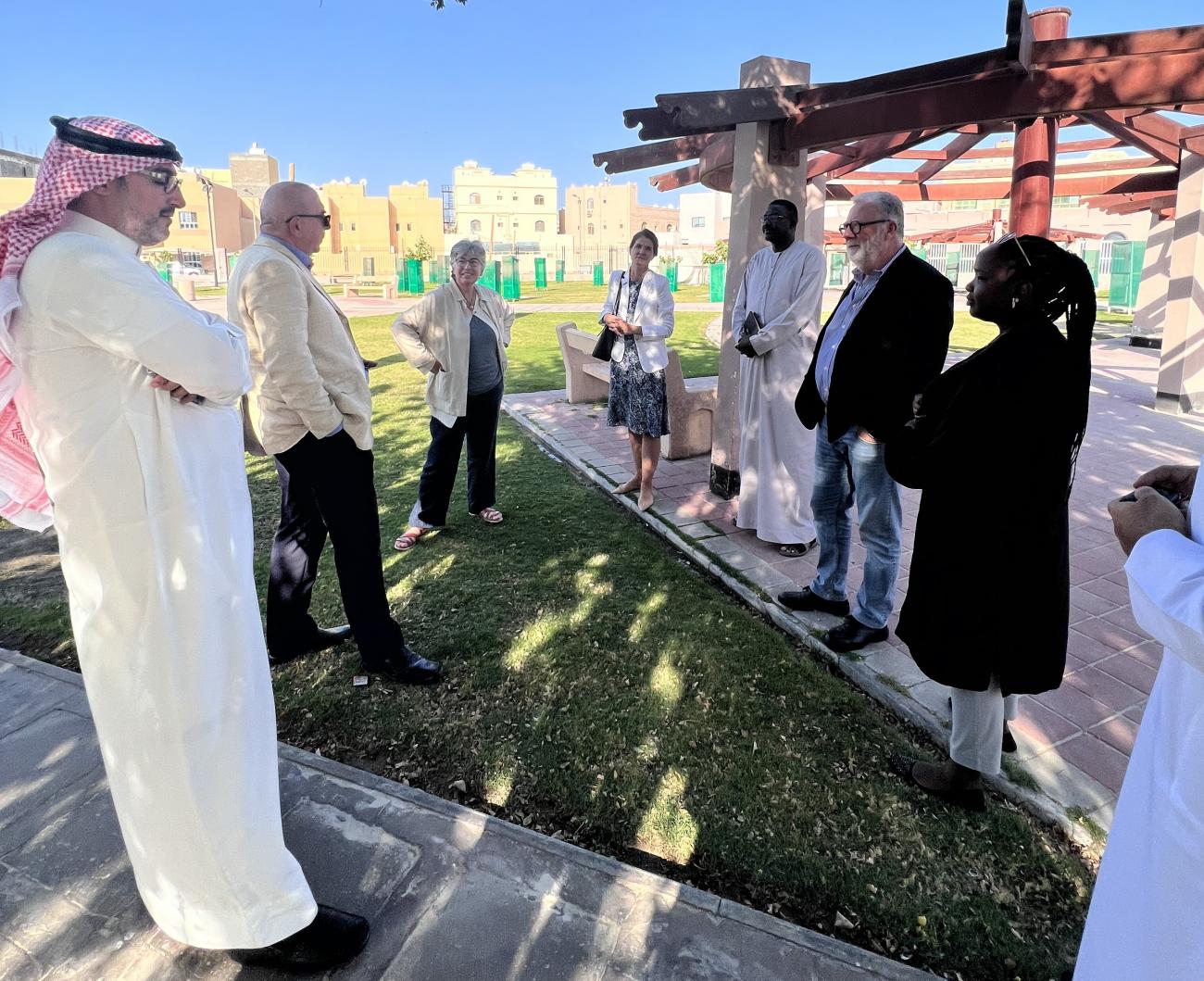UN-Habitat Bahrain undertakes national-wide assessment of public parks to promote sustainable and vibrant communities

The assessment underscores the importance of public parks as a fundamental element of urban life and cohesive communities.
The United Nations Human Settlement Programme (UN-Habitat) Bahrain, in partnership with the Ministry of Municipalities and Agriculture and Budaiya Hub, is conducting a national-wide assessment of public parks in Bahrain within three key thematic areas: accessibility, comfort and green cover, with the view to enhance community usage, well-being and support plans for renovation and design of outdoor spaces.
The preliminary results show that Bahrain has a large offer of public parks of different sizes although there is limited walkability to parks, with only small percentage of households (less than 15%) having a park within walking distance (400 meters, as defined by the United Nations).
The distribution of green cover in Bahrain’s public parks showcases considerable variability, with many parks having less than 30% green cover. Permeability, which refers to the ability of green spaces to allow water infiltration, is a crucial factor in assessing their effectiveness. Promoting permeable surfaces and sustainable landscaping practices in public spaces is essential for enhancing urban resilience and environmental sustainability in Bahrain.
The assessment is being conducted by a group of 30 volunteers who made on-site visits to all 154 parks in Bahrain to collect data through a customized questionnaire, gathering information on physical facilities, accessibility and ecological aspects and usage patterns of the parks. Several training sessions and capacity-building opportunities were provided to the young professionals and students, contributing to enhancing knowledge and expertise on sustainable urban development.
“Parks and green public spaces are an important aspect of urban life in Bahrain. The improved accessibility of parks contributes to enhancing the environment, contributing to better physical and mental health, and adds important recreational and inclusive spaces in the Kingdom. The National Assessment analyzes the quality of the parks in Bahrain and will derive key recommendations to improve accessibility and quality of our public spaces in the Kingdom.” Dr Fernanda Lonardoni, Head of UN-Habitat Bahrain, said.
“As part of the initial findings, the assessment recommends increasing the allocation of land to parks to foster greater community well-being, social cohesion and environmental sustainability and to create more vibrant urban communities in Bahrain.” she said.
The assessment is part of a broader spectrum of projects by UN-Habitat in collaboration with the Government of Bahrain, with an aim to improve sustainable urban development in the Kingdom, promote and transform urban systems and enhance public and green spaces. The full results are expected by the end of the year and will include design solutions for public space development involving the community.



